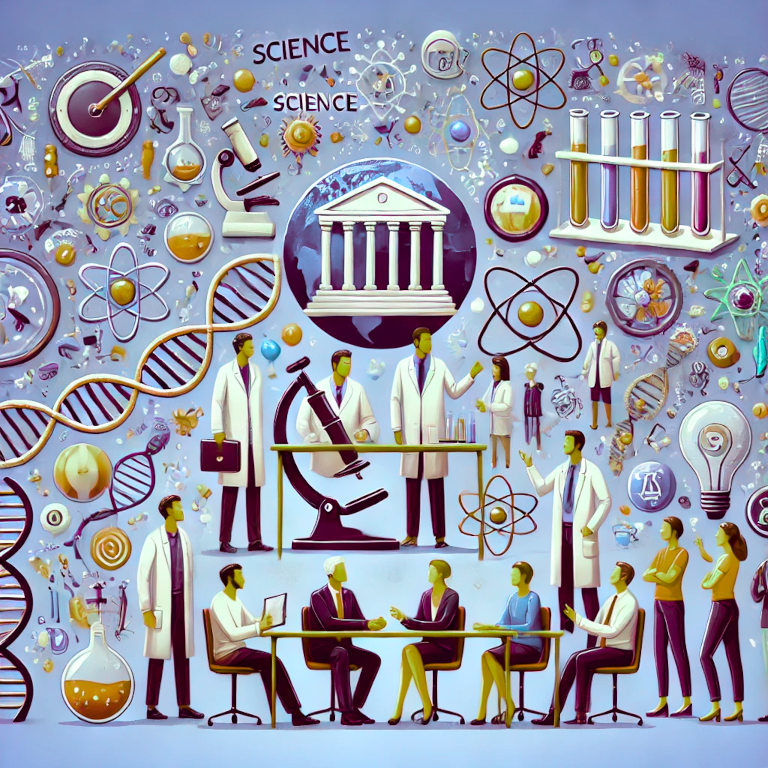Science advocacy plays a critical role in promoting scientific literacy, influencing policy, and fostering a culture that values and supports scientific research. By bridging the gap between scientists and the public, science advocates work to ensure that science remains a central part of decision-making processes at all levels of society. As an expert in Science and Education, I will explore the importance of science advocacy, its key components, and how individuals and organizations can effectively engage in this vital work.
Understanding Science Advocacy
Science advocacy involves activities and initiatives aimed at promoting the value and importance of science to policymakers, educators, and the general public. It seeks to ensure that scientific evidence is considered in policy decisions and that scientific research is adequately funded and supported. Science advocates work to raise awareness about the benefits of science and to counter misinformation and skepticism.
The Importance of Science Advocacy
- Promoting Scientific Literacy: Science advocacy helps improve public understanding of scientific concepts and the scientific method. By making science accessible and engaging, advocates can foster a more scientifically literate society that is better equipped to make informed decisions.
- Influencing Policy: Advocates work to ensure that policy decisions are informed by the best available scientific evidence. This is crucial for addressing complex issues such as climate change, public health, and technological innovation.
- Supporting Research Funding: Science advocacy plays a key role in securing funding for scientific research. Advocates work to communicate the importance of scientific research to lawmakers and the public, highlighting its potential benefits for society.
- Encouraging STEM Education: Advocacy efforts often focus on promoting science, technology, engineering, and mathematics (STEM) education. By inspiring the next generation of scientists and engineers, advocates help ensure a future workforce capable of addressing global challenges.
- Countering Misinformation: In an era of widespread misinformation, science advocates work to provide accurate information and counter false claims. This is essential for maintaining public trust in science and for ensuring that decisions are based on sound evidence.
Key Components of Effective Science Advocacy
- Clear Communication: Effective science advocacy requires clear and compelling communication. Advocates must be able to explain complex scientific concepts in a way that is understandable and relevant to diverse audiences.
- Engagement with Policymakers: Building relationships with policymakers is crucial for influencing policy decisions. Advocates should be prepared to provide evidence-based recommendations and to explain the implications of scientific research for policy.
- Public Outreach and Education: Engaging with the public through outreach and education initiatives helps raise awareness about the importance of science. This can include public lectures, science festivals, social media campaigns, and educational programs.
- Collaboration with Scientific Organizations: Partnering with scientific organizations can amplify advocacy efforts. These organizations often have the resources and networks to support large-scale advocacy campaigns.
- Grassroots Mobilization: Encouraging individuals to become advocates for science can create a powerful grassroots movement. This can involve training volunteers, organizing community events, and providing resources for effective advocacy.
Strategies for Science Advocacy
- Storytelling: Use storytelling to make scientific concepts relatable and engaging. Personal stories from scientists and individuals impacted by scientific research can be particularly powerful.
- Media Engagement: Leverage traditional and social media to reach a broad audience. Write op-eds, participate in interviews, and use social media platforms to share scientific information and advocacy messages.
- Educational Workshops: Host workshops and seminars to educate the public and policymakers about scientific issues. These events can provide an opportunity for in-depth discussions and questions.
- Science Policy Fellowships: Encourage scientists to participate in policy fellowships and internships. These programs provide valuable experience and help bridge the gap between science and policy.
- Advocacy Training: Provide training for scientists and advocates on effective communication and advocacy techniques. This can include public speaking, media training, and legislative processes.
Examples of Science Advocacy in Action
- March for Science: The March for Science is a global movement that advocates for evidence-based policy and the importance of science in society. It includes marches, rallies, and educational events aimed at promoting scientific research and its role in decision-making.
- National Science Foundation (NSF) Advocacy: Organizations like the American Association for the Advancement of Science (AAAS) advocate for increased funding for the NSF and other scientific research agencies. They engage with lawmakers to highlight the benefits of federally funded research.
- Climate Change Advocacy: Numerous organizations and advocates work to promote policies that address climate change. This includes communicating the science of climate change to the public and policymakers, as well as advocating for sustainable practices and renewable energy solutions.
- STEM Education Initiatives: Programs like the STEM Education Coalition advocate for policies that support STEM education at all levels. They work to ensure that students have access to quality STEM education and that teachers have the resources they need to be effective.
Summary
Science advocacy is essential for promoting scientific literacy, influencing policy, and ensuring the continued support of scientific research. By engaging with policymakers, the public, and the scientific community, advocates can help create a society that values and supports science. Effective advocacy requires clear communication, public outreach, and collaboration with scientific organizations. Through these efforts, science advocates can make a significant impact on the future of science and society.






